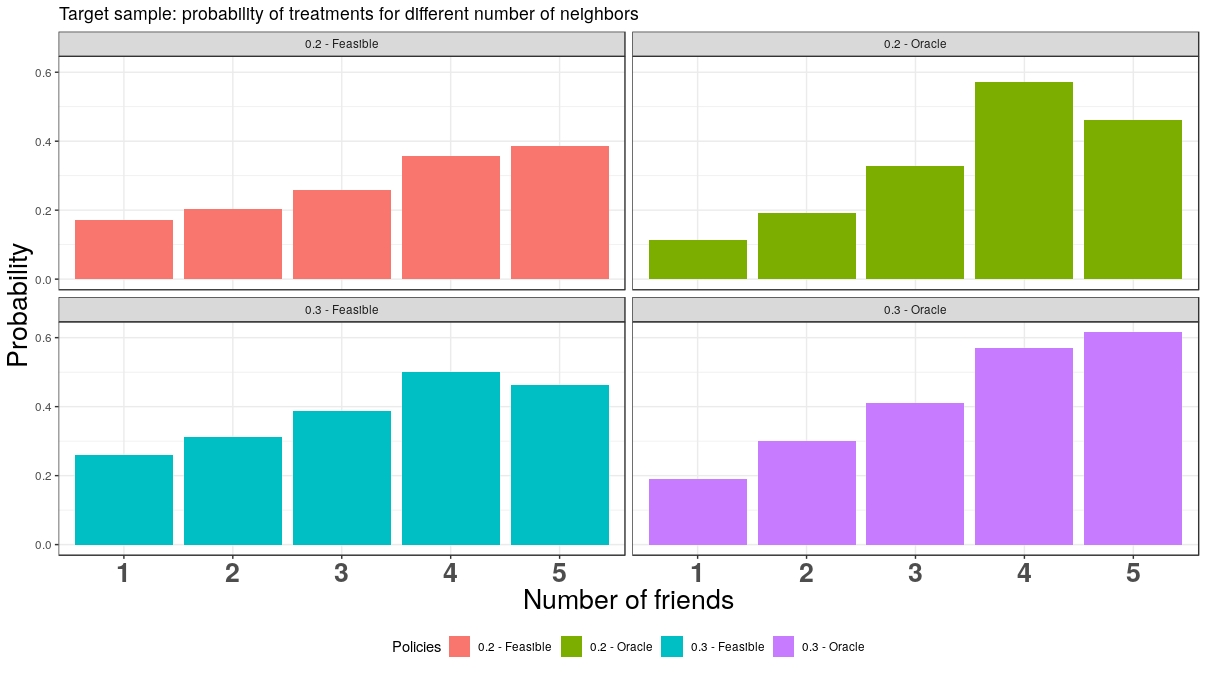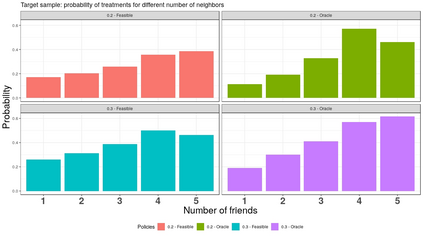This paper discusses the problem of estimating treatment allocation rules under network interference. I propose a method with several attractive features for applications: (i) it does not rely on the correct specification of a particular structural model; (ii) it exploits heterogeneity in treatment effects for targeting individuals; (iii) it accommodates arbitrary constraints on the policy function, and (iv) it can also be implemented when network information is not accessible to policy-makers. I establish a set of guarantees on the utilitarian regret, i.e., the difference between the average social welfare attained by the estimated policy function and the maximum attainable welfare, allowing for known and unknown propensity score. I provide a mixed-integer linear program formulation, which can be solved using off-the-shelf algorithms. I illustrate the advantages of the method for targeting information on social networks.
翻译:本文讨论了在网络干扰下估计治疗分配规则的问题,我建议了一种具有若干吸引应用特点的方法:(一) 它不依赖对特定结构模式的正确说明;(二) 它利用针对个人的治疗效果的异质性;(三) 它考虑到政策功能的任意限制,以及(四) 它也可以在决策者无法获得网络信息时加以执行。 我对功利的遗憾,即估计的政策功能所达到的平均社会福利与可达到的最高福利之间的差异,提出了一套保证,允许对已知和未知的倾向性进行分数。我提供了混合的线性方案拟订,可以用现成的算法加以解决。我说明了确定社会网络信息的方法的优点。






